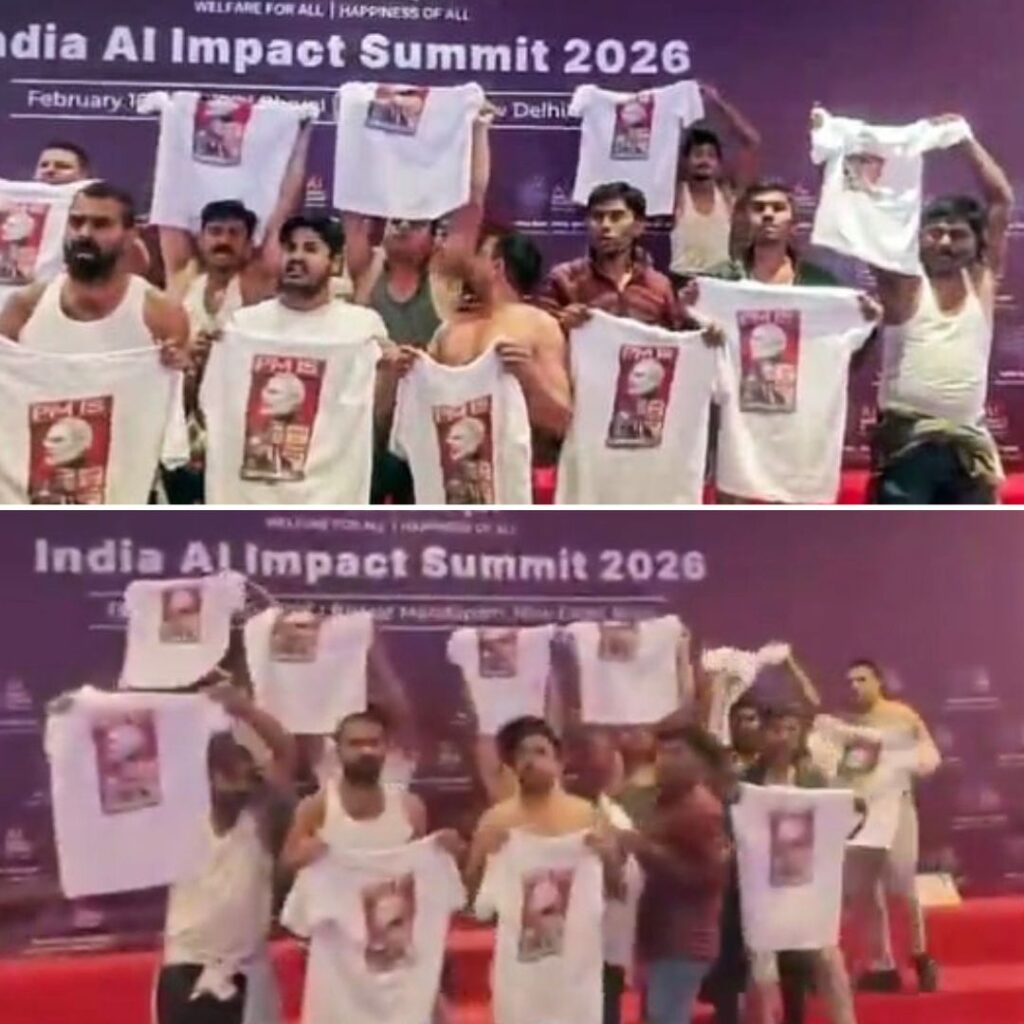On September 5, 2025, far-right activist Laura Loomer posted a tweet claiming that US President Donald Trump is contemplating blocking American IT companies from outsourcing their work to Indian firms. The tweet swiftly caught attention, especially with Loomer’s emphasis on ending the practice where American customers calling support centres often need to “press 2 for English.”
She exclaimed, “Make Call Centres American Again!” expressing excitement about a future where Americans would no longer have to engage with service representatives “who don’t speak English.” This statement reflects Loomer’s advocacy within nationalist and “America First” circles, pushing for repatriating jobs to the domestic workforce.

Decoding ‘Press 2 for English’: Language and Outsourcing Realities
The phrase “press 2 for English” refers to an automated prompt in many US customer service lines, where callers choose languages, commonly Spanish or English, because a large portion of English-language call centre work is outsourced to countries like India.
While Loomer’s tweet taps into frustrations around language and service quality, data reveals a more nuanced story. According to Pew Research, nearly 84% of Indians aged five and above speak English proficiently, many serving as skilled customer support and IT professionals.
Companies often train these employees extensively to handle US customers efficiently, including adopting American names and accents. Yet, the stereotype remains a powerful symbol in the debate about outsourcing and job security.
I am so excited for President Trump to end the days of pressing 2 for English to speak with someone who doesn’t speak English.
— Laura Loomer (@LauraLoomer) September 5, 2025
Very nice.
Political and Economic Context: Trade Tensions and Tariffs
Loomer’s claims come at a time of heightened trade tensions between the US and India. Trump has imposed steep tariffs on Indian imports as punishment for India’s continued oil purchases from Russia, straining the strategic partnership between the two nations.
In parallel, right-wing commentators like Jack Posobiec are pushing for tariffs on “foreign remote workers,” arguing that countries providing remote services to the US should be taxed similarly to goods imports. Trump’s trade adviser Peter Navarro has shown support for these ideas, tweeting, “It’s tariff time,” and linking outsourcing to wage suppression for US workers.
Although no official policy banning outsourcing yet exists, Loomer’s assertions highlight the political pressure within Trump’s support base demanding stricter measures.

Impact on Indian IT Sector and US Businesses
India’s IT industry is a major economic driver, contributing nearly $250 billion annually and employing millions in technical, backend, and support roles. American companies like Tata Consultancy Services, Infosys, and Wipro depend heavily on outsourcing contracts from the US.
Experts warn that a move to ban or heavily tax such outsourcing could lead to substantial job losses in India and increased operational costs for US businesses, potentially accelerating offshoring rather than rescuing local jobs.
In fact, similar past restrictions encouraged relocation of entire operations abroad, undermining the goal of preserving US employment. It also risks disrupting the technological interdependence critical for innovation and competitiveness in the global market.
The Logical Indian’s Perspective
While concerns around protecting jobs and national interests are valid, The Logical Indian believes that building international cooperation and mutual respect ultimately drives sustainable economic success and harmony. Erecting barriers through bans or tariffs may generate short-term political gains but cause lasting harm to livelihoods and bilateral relations.
Instead, policies focusing on enhancing skills, facilitating fair competition, and promoting ethical business practices can help both the US and India balance growth, job security, and geopolitical stability.
JUST IN:
— Laura Loomer (@LauraLoomer) September 5, 2025
President Trump is now considering blocking US IT companies from outsourcing their work to Indian companies.
In other words, you don’t need to press 2 for English anymore.
Make Call Centers American Again!
Tariff the foreign remote workers
— Jack Poso 🇺🇸 (@JackPosobiec) September 1, 2025
All outsourcing should be tariffed
Countries must pay for the privilege of providing services remotely to the US the same way as goods
Apply across industries, leveled as necessary per country












